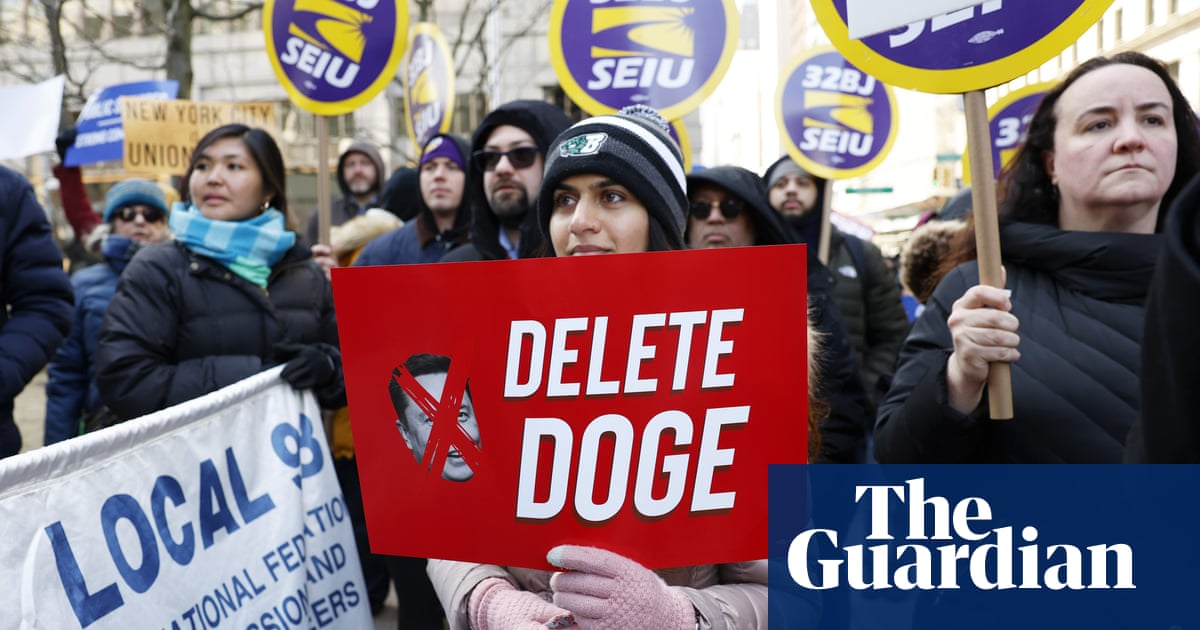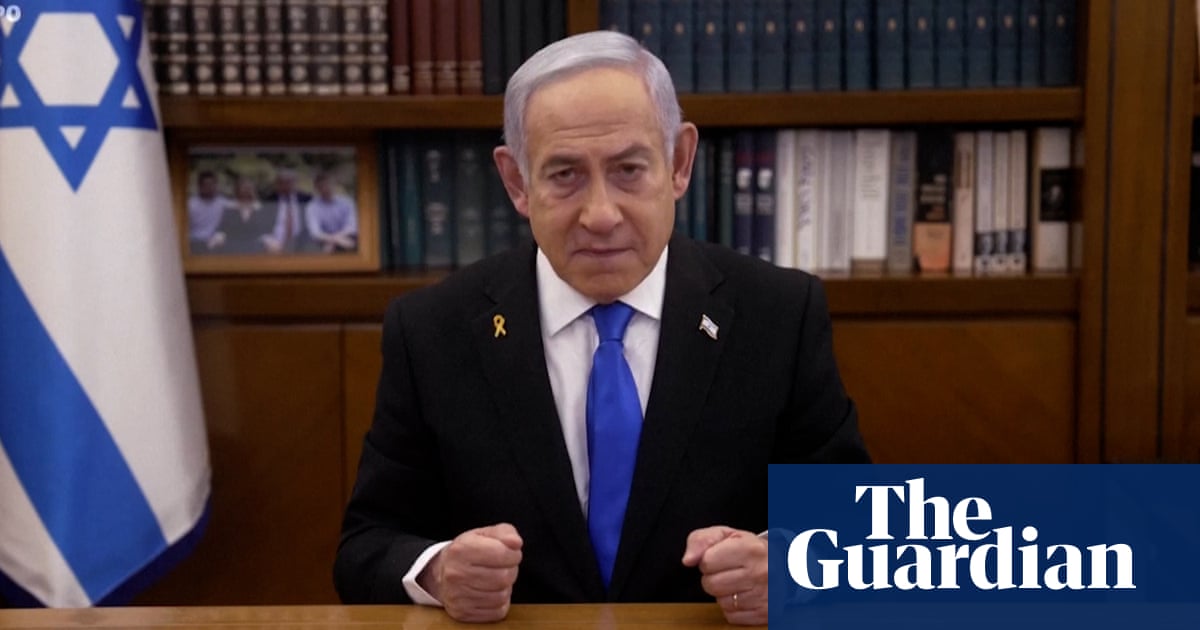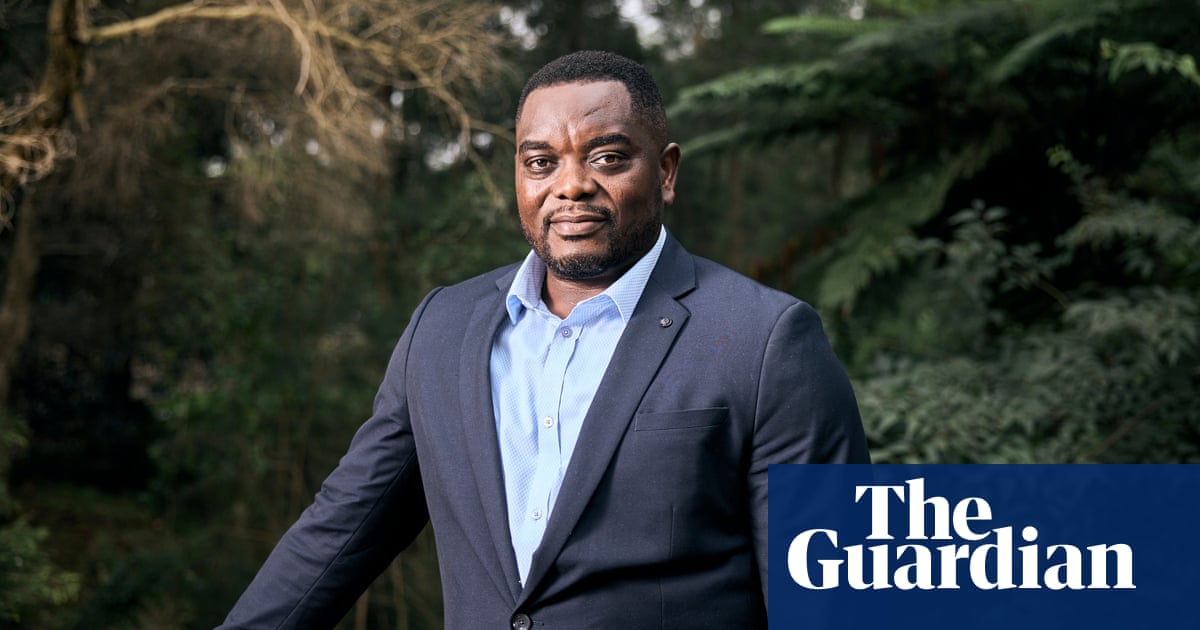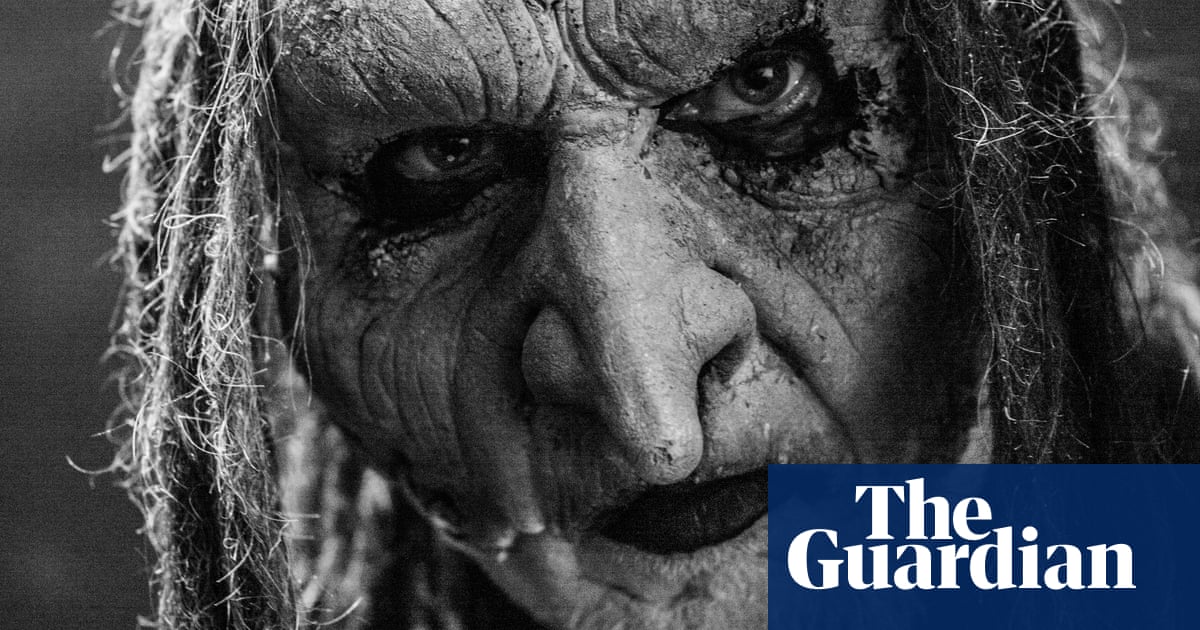In the account Dr Dewi Evans gives of the work he did for the police and prosecution cases against Lucy Letby, he says he suspected “foul play” within 10 minutes of reading the first medical records of a baby that he saw.
Evans, then 67, a retired consultant paediatrician, says when he looked at postmortem photos of that first baby he saw bleeding over the liver. “I thought, ‘Oh my God. This baby has suffered trauma.’ We knew instantly that something suspicious had gone on.”
Cheshire police were impressed, agreed fees, then supplied Evans with the medical records for all babies whose collapses at the Countess of Chester hospital they were investigating. The Crown Prosecution Service instructed six more medical experts, but Evans was their lead, and his evidence would prove crucial to securing the convictions of Letby, a neonatal nurse at the hospital, in one of Britain’s most astonishing criminal cases.
Letby was convicted of murdering seven babies in 2015 and 2016 and attempting to murder seven more. The murder charges were based on her having injected air, either into the babies’ stomachs via feeding tubes, or into their veins causing air embolism, a lethal condition. The murder convictions included the baby whose records Evans saw first, anonymised as Baby O; Letby was accused of harming the liver and injecting air.
Since the trials ended in July, many leading medical experts have spoken out and criticised, even ridiculed, the evidence presented by Evans and the CPS on which Letby was convicted, in particular about the injection of air.
At a press conference on Monday, Letby’s barrister Mark McDonald acknowledged the grief and distress of the parents whose babies died, while saying his duty was to represent Letby, who has always maintained she is innocent. McDonald revealed that two consultant neonatologists – specialists in premature babies – had produced two new reports, on Baby O and Baby C. They too found that Baby O’s liver damage was catastrophic. But they concluded that a doctor caused the damage, by mistakenly puncturing the liver with a needle, while inserting a cannula during resuscitation efforts.
Hospital notes documenting the failed resuscitation of Baby O state that Dr Stephen Brearey, senior consultant and neonatal lead, inserted the cannula. Brearey declined to comment.
That alternative report would form evidence for Letby’s application to the Criminal Cases Review Commission, McDonald said. He also said he would directly ask the court of appeal to quash the convictions, arguing that Evans was an unreliable witness because “remarkably” he had “changed his mind” since the trial on how three babies died.
Evans hit back, describing McDonald’s comments as “unsubstantiated, unfounded, inaccurate”, and maintaining that Letby was guilty of committing all the crimes.
This intense focus on one expert witness and his reliability, after convictions on such a scale, has few precedents in the history of England’s criminal trial system.
‘Very, very informal’
The way Cheshire police quickly selected Evans as their expert has itself become a focus of criticism by the expert group now supporting Letby. It was, he acknowledges, “very, very informal”.
Evans retired as a consultant paediatrician, with experience of neonatology, in 2009. After that, he worked prolifically as an expert witness. In May 2017, he read about the Chester investigation, and emailed a contact at the National Crime Agency (NCA).
“If the Chester police have no one in mind, I’d be interested to help,” he wrote. “Sounds like my kind of case.”
Evans told the Guardian: “They [the NCA] rang me back and said: ‘Are you interested in this?’ And I said: ‘Tell Cheshire police to ring me up.’ It was very, very informal, almost a chance encounter actually.” The police followed up with a phone call, and in July 2017, Evans drove to Chester and saw those first medical records.
In internal police emails disclosed to Letby’s defence and seen by the Guardian, one officer wrote to the NCA after that first meeting: “We were certainly impressed with Dr Evans and he’s clearly very interested in assisting us!”
The officer asked the NCA if there were references for Evans from other police officers. It is not clear if the Cheshire force conducted a wider search for their lead expert.
Other expert reviews
At the opening of her public inquiry into Letby’s crimes in September, Lady Justice Thirlwall dismissed concerns over the convictions as “noise”. But her inquiry has published extensive evidence the trial did not see, showing that the same medical records Evans saw were also reviewed by senior, specialist, currently practising consultants, none of whom found foul play.
The reviews were commissioned after a higher than average number of babies died on the hospital’s neonatal unit (NNU) from June 2015, which was recognised to be a crisis in June 2016, when Babies O and P, two triplets, died.
After those deaths, the consultants led by Brearey and his colleague Dr Ravi Jayaram, escalated suspicions against Letby, based on her being on shift when babies died.
The hospital’s medical director, Dr Ian Harvey, commissioned an independent review by the Royal College of Paediatrics and Child Health, which found that the NNU was short of consultants. Harvey also asked the consultant neonatologist Dr Jane Hawdon, of Royal Free London, to review the individual babies’ case notes.
Hawdon reached explanations for 13 of 17 babies who had died or collapsed. She made no suggestion that the babies died from air injection, or any deliberate harm.
Dr Jo McPartland, a consultant pathologist at Alder Hey hospital, whose three consultants had conducted postmortems, then reviewed the four babies whose collapses Hawdon had been unable to explain: A, I, O and P.
Five years later, based on the prosecution experts’ medical opinions, led by Evans, Letby was convicted of murdering all four babies by air injection, including causing air embolism in Baby A.
McPartland reported in January 2017 of Baby A that “there was no evidence of air embolism [sic]”. The pathologists agreed there were medical reasons for Baby I’s death, including “extreme prematurity”. Baby O was found to have died due to the liver damage, but a prior collapse was “unexplained”. Baby P’s cause of death had been determined as “prematurity”, but could have been classed as unexplained or unascertained. McPartland did not suggest any deliberate harm.
Giving evidence to the inquiry, Hawdon said she now felt “misled”, and would not have taken on the review had she known the consultants were strongly accusing Letby. She also said she would now agree with the hospital consultants that more deaths were unexplained. Harvey firmly denied the accusation that he had misled her.
McPartland told the inquiry that if she had known the hospital consultants were asking if deliberate harm had been inflicted, she would not have done the same exercise, and would have said the police and a forensic pathologist should be called in.
Another leading expert, Dr Janet Rennie, a consultant neonatologist at University College hospital, London, later compiled reports on the babies, instructed by the Chester hospital. In her reports, seen by the Guardian, Rennie mostly concluded that the causes of their collapse were unexplained.
The Guardian has seen further “preliminary” medical reports produced in 2020 by Dr Grenville Fox, a consultant neonatologist at Guy’s and St Thomas’ NHS foundation trust in London. A law firm asked him to consider whether there had been care failings with three babies the CPS would later charge Letby with harming: B, N and Q. Fox found their collapses could be expected for premature babies with their medical conditions, and did not criticise the care.
None of these experts made any suggestion of air embolism, or air injected down feeding tubes, nor that any baby had been deliberately harmed in any way.
The coroner for Chester held an inquest into Baby A’s death that could not determine the cause of death and also did not find any deliberate harm or air embolism.
Experts say that causes of babies’ collapses cannot always be explained, even by extensive review, including postmortems.
Asked by the Guardian to explain how he diagnosed air embolism when none of these experts did, from the same medical notes, Evans said he had done so independently.
“Well without being too blase about it, it’s only difficult if you don’t know the answer, OK. Once you know, you know … It’s not very good asking me why I diagnosed air embolus. I think you should be asking other people why didn’t they make the diagnosis.”
He explained that he identified it due to rashes, air observed in some postmortems – although bodies produce air after death – and by excluding other medical causes. But he also acknowledged that air embolism is very difficult to prove: “Trouble is you don’t get evidence: air embolus doesn’t leave any marks, you see.”
Changes of mind
Letby’s conviction for killing Baby C has become the subject of a mounting controversy, with Evans publicly stating that he has now changed his opinion on how the baby was harmed. In a recent interview with the Guardian, Evans admitted he no longer stood by a key diagnosis he produced for the trial.
Letby was charged with killing Baby C by injecting air down the feeding tube into the stomach. The charge was based on Evans’s opinion, stated in a written experts’ report, that air in the stomach seen on an X-ray taken on 12 June 2015 had most likely been injected. It emerged at the trial that Letby had not worked at the hospital from the day Baby C was born, 10 June 2015, to the day of the X-ray.
Evans departed from his written opinion when giving evidence in court, saying Letby may have injected air into the baby’s vein the following night, when she was on shift. Since the trial, he has said this is firmly his opinion.
Evans told the Guardian he now recognised there were probable medical causes for the air in the stomach seen on the X-ray, including that the baby had not had a bowel movement.
“What I had not realised – I don’t think any of us realised – was the delayed bowel action was a more important factor in causing the air in the stomach,” he said.
In a subsequent email, Evans said: “Air via an NG [feeding] tube is one explanation regarding [Baby C’s] X-ray findings. [The baby’s] lack of intestinal movement, and … treatment with CPAP, later Optiflow [breathing aids], offer a more realistic explanation …”
Evans said his new opinion was based on the baby’s sudden collapse and unsuccessful resuscitation on 13 June 2015, on ruling out other possible causes, and realising that Letby was on shift, and had gone into the baby’s room.
“Something must have happened,” he said. “I know that’s not a very scientific term.”
Evans said in October he had written a new report on Baby C, and sent it to Cheshire police. McDonald said that despite “numerous requests” to the CPS, they had yet to share it.
The two consultant neonatologists, Dr Neil Aiton and Dr Svilena Dimitrova, who produced the new reports for Letby’s appeals, said on Monday that medical causes explained Baby C’s death, and there was no evidence of deliberate harm.
‘Professional misconduct’
Letby’s barrister for the trial, Benjamin Myers KC, repeatedly accused Evans of not acting properly as an independent expert witness. Experts’ legal duty is not to take a side or be concerned with the outcome of a case, but to provide objective opinion on their area of expertise. Myers accused Evans of making up alleged harms to support the case that Letby was guilty. Evans denied that, and stood by his opinions.
Months into the trial, damning criticisms of Evans were made by a senior judge, Lord Justice Jackson, in a different civil case. He dismissed Evans’s report as “worthless” and stated that Evans had breached his expert’s duty by deciding on an outcome he wanted, then “working out an explanation” to achieve it.
“Of greatest concern,” Jackson wrote in the decision, “Dr Evans makes no effort to provide a balanced opinion.” The judge said Evans had either not taken steps to inform himself about other medical experts’ conclusions, or he had disregarded them. “Either approach amounts to a breach of proper professional conduct.”
Myers applied for Evans’s evidence in the Letby prosecution to be disregarded, but the trial judge, Mr Justice Goss, refused, and said instead that Myers could make the jury aware of the judgment, and question Evans about it.
There followed a fractious exchange about the report, which Evans said was only a letter to a solicitor that he did not expect to go before the court. Myers challenged Evans that “working out an explanation” was “precisely what you were doing in this [Letby] case at various points”. Evans denied that, maintained that he had provided his clinical opinion of the babies’ deaths and collapses, and told Myers he was being “rather insulting”.
In May, the court of appeal refused Letby’s application for permission to appeal; the judges upheld Goss’s decision to retain Evans in the trial, said Evans did have the “requisite expertise” and dismissed concerns about impartiality.
Only lost one case
In his many statements to the media since the trial ended with Letby’s multiple convictions, Evans has repeatedly said as a mark of his credentials that in 35 years working as an expert witness, he only lost one case. Yet that perspective has itself raised concerns.
Prof Gillian Tully of King’s College London, a former forensic science regulator, said she was “deeply disappointed” by his comments. She said: “That is entirely inappropriate. An expert should not be concerned about the outcome of a trial, only about providing independent evidence. They must not see themselves as being on one side; they have to be impartial. I don’t see how somebody can claim to be impartial if they say they have won or lost cases.”
Evans responded by saying that his record showed his work stood up to scrutiny: “I would suggest that this indicates being careful. And thorough. It’s proof of my impartiality. Partisan witnesses don’t last long.”
Evans responded to McDonald’s criticisms this week by pointing out that Letby was convicted of murder. He also referred to the court of appeal judgment, saying the judges were “supportive of my evidence”.
Responding to the Guardian’s questions about Baby C, Evans stood by his opinions, and wrote in an email: “Lucy Letby murdered Baby C. Get that into your head.”

 2 months ago
37
2 months ago
37













































